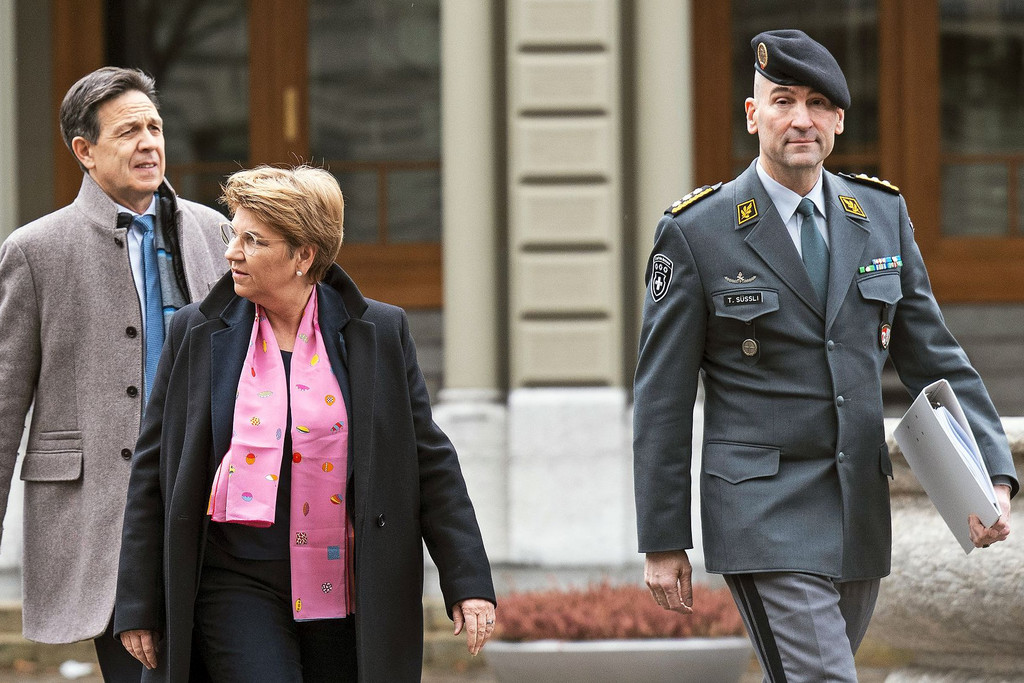
Triumphant ‘climate seniors’ cause a stir

The big wolf hunt in the Swiss mountains

News

What has Switzerland learned from the Credit Suisse debacle?

News

More money for defence, less for foreign aid

News


The Swiss Armed Forces – do they or don’t they have enough money? A question on many people’s lips at the beginning of 2024.
First came the bombshell. Due to challenging financial circumstances, the army announced the cancellation of various events including a major air show in Emmen. Politicians and the media wondered what was going on. Chief of the Armed Forces Lieutenant General Thomas Süssli tried to explain. What did “liquidity bottleneck” really mean? Days passed until Defence Minister Viola Amherd intervened. The dust has now settled, but of one thing we can be sure: there is room for improvement with regard to communication at the top of the army.
Süssli would not have called off an air show and other high-profile events without good reason. Such events cost nothing compared to funding new fighter jets. But they are popular. Süssli certainly got the attention he wanted. He said that “liquidity” was one of the factors on which he had based his decision. But what did he really mean? Is the military about to run out of cash?
Coincidence or not, but news came out on Swiss public radio a few days later of an internal memo from the Armed Forces Staff, which stated that the army has one billion Swiss francs less than it needs in 2024 and 2025 to pay for defence purchases that have already been made. According to Radio SRF, the internal document spoke of a “liquidity bottleneck” – a bottleneck that is partially self-inflicted due to the military deviating from its budget.

Military planners have already known for years that buying new fighter jets and strengthening air defence systems would be a big challenge within existing budget constraints. Hence the decision was taken to make barely any new arms purchases, if at all, over a number of years in order to free up money. But the military veered from this plan. From 2020, the Federal Council and parliament approved new arms orders over and above what was originally earmarked. The army has been living beyond its means since then.
An unexpected solution appeared to surface in 2022, when parliament decided to boost defence spending following Russia’s invasion of Ukraine. The aim was to increase the country’s military budget to 1 per cent of GDP by 2030, from 5.3 billion to 9.5 billion Swiss francs a year. The finance ministry put on a brave face – and the military began to prepare a new shopping list.
But the Federal Council pulled the emergency cord only one year later after seeing how stretched federal finances had become. It advocated that arms expenditure now rise to 1 per cent of GDP by 2035 instead of 2030. Parliament accepted this slower timeline – a five-year delay that seems negligible on paper but has major implications. The army will have significantly less money – “only” around 5.3 billion francs – to buy new arms from now until 2035. The military has agreed purchases for which it no longer has a budget. And the top brass wanted to draw attention to this fact.
The communication could nonetheless have been better. An unfortunate choice of words (“liquidity bottleneck”) gave the unwanted impression that the army would soon be bereft of funds. Amherd rowed back a few weeks later in an interview with the “Neue Zürcher Zeitung”, explaining that the military interpretation of “liquidity bottleneck” differed from general usage. This is what had caused the confusion. It did not mean that the army could no longer pay its bills.
In the short term, the number crunchers can solve the issue by repeatedly postponing projects and their associated costs. But this does nothing to treat the underlying problem: the military lacks the financial means to fund all the capabilities it wants.

Comments